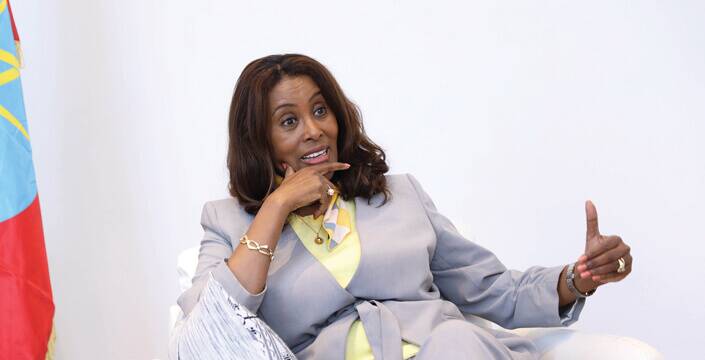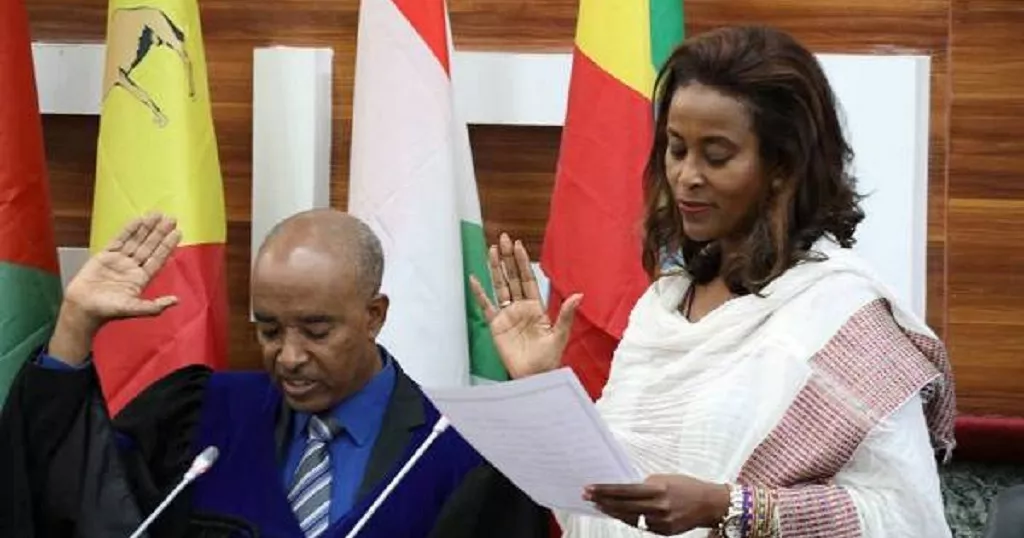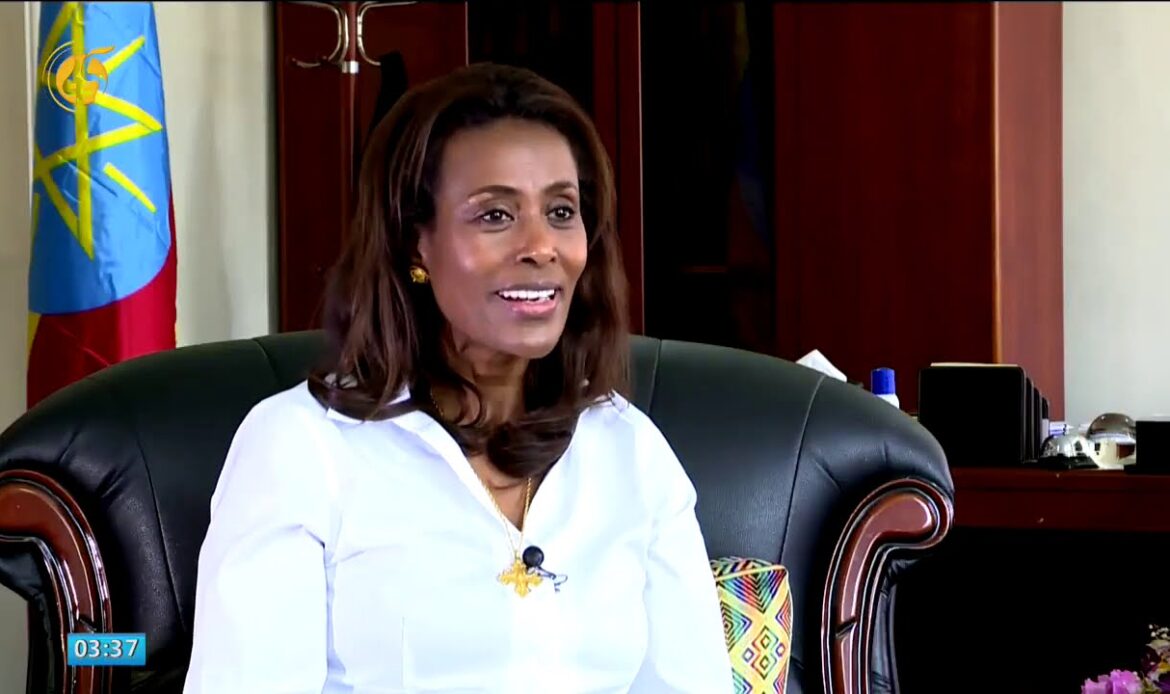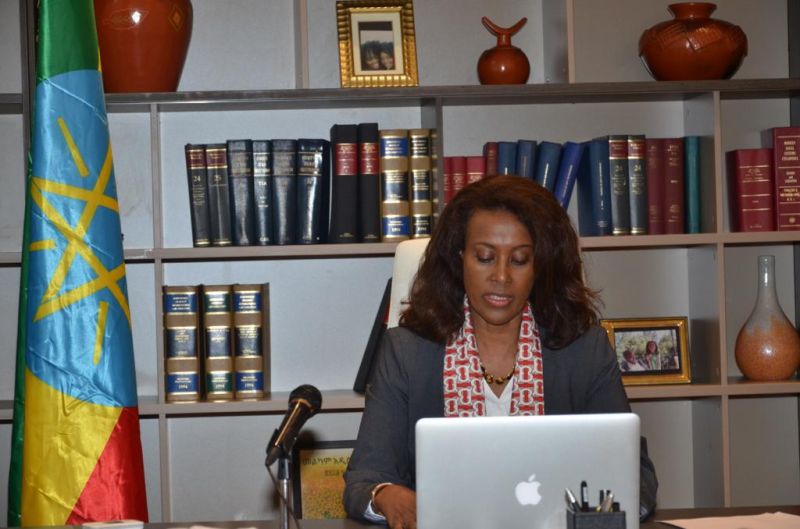
Imagine being the only woman in a law school class of fifty men in a society that often places women on the sidelines. Now, imagine taking on that challenge and using it to shape the future of women’s rights in an entire nation. This is the story of Meaza Ashenafi, an Ethiopian lawyer, human rights advocate, and groundbreaking legal figure known for her fearless pursuit of justice and equality.
Read: Nigerian-Born Samson Dauda Wins 2024 Mr. Olympia, Makes History
Breaking Barriers: Ethiopia’s First Female Chief Justice
In 2018, Meaza Ashenafi made history by becoming the first woman appointed as President of Ethiopia’s Federal Supreme Court. This monumental achievement was a defining moment not only for Ethiopia but also for African women in law.

Meaza’s journey to this esteemed position is a testament to her unyielding dedication to justice and equality. Born on July 25, 1964, in the Asosa Zone of Benishangul-Gumuz, Ethiopia, Meaza was one of nine siblings raised by Ashenafi Mengistu, a former city mayor, and Askalech Tegegne. Her early years were marked by curiosity, resilience, and an unwavering drive for education and justice.
At 17, Meaza enrolled in the Faculty of Law at Addis Ababa University. Despite being the only woman in her class, she earned her Bachelor of Laws degree in 1986, standing her ground in a male-dominated field. Her legal career began shortly after graduation when she joined the Ministry of Trade and became a Federal High Court Judge.
Meaza Ashenafi Championing Women’s Rights
Meaza’s passion for justice was fueled by the lack of legal support for Ethiopian women, particularly those economically disadvantaged. In 1995, Meaza co-founded the Ethiopian Women Lawyers Association (EWLA), a pivotal organization aimed at providing legal defense for women who couldn’t afford representation.
As the executive director of EWLA, she transformed the association into a powerful tool for change. The organization became an essential resource for thousands of women, giving them a voice in a system where they had often been silenced.
One of Meaza’s most famous cases came in 1996 when she took on the defense of a 14-year-old girl who had been abducted and raped by men intending to force her into marriage—an age-old tradition in rural Ethiopia.
When the girl killed her captor in self-defense, Meaza represented her pro bono, arguing that the act was a result of self-defense against her abductor. The case garnered international attention and led to the outlawing of the practice of bride abduction in Ethiopia, a significant victory for women’s rights. This groundbreaking case later inspired the 2014 film Difret, which won the World Cinematic Dramatic Audience Award at the Sundance Film Festival.
Meaza’s influence on women’s rights extended beyond the courtroom. She coined a term in Amharic to describe sexual harassment, an issue that had previously been ignored in Ethiopian legal circles. By bringing attention to this problem, she helped reshape the way the Ethiopian judicial system approached sexual harassment and gender-based violence.
A Global Advocate and Leader

Meaza’s impact didn’t stop at national borders. In 2005, she earned a Master’s degree in International Relations and Gender Studies from the University of Connecticut, further honing her expertise in human rights law. She later joined the United Nations Economic Commission for Africa (UNECA), where she served as a senior adviser on gender and social policy development.
Her work at UNECA reinforced her reputation as a global leader in gender advocacy. In 2015, she was nominated for the Nobel Peace Prize in recognition of her relentless pursuit of justice for women. In addition to her judicial reforms, Meaza played a crucial role in founding Enat Bank, Ethiopia’s first women’s bank, in 2011.
The bank was created to empower women economically and provide financial services tailored to their needs. As the chair of its board, Meaza ensured that the bank became a beacon of financial inclusion, helping countless women access the capital needed to start businesses and improve their livelihoods.
Meaza Ashenafi’s Legacy as Chief Justice

As President of the Federal Supreme Court, Meaza introduced numerous reforms to modernize Ethiopia’s judicial system and improve the administration of justice. She worked tirelessly to enhance coordination among justice sector institutions, particularly in handling criminal justice administration and constitutional disputes. Her leadership increased transparency, accountability, and efficiency within the Ethiopian judiciary.
Despite stepping down from her position in 2023, Meaza’s legacy continues to inspire future generations of women in Ethiopia and across Africa. Her life’s work is a testament to the power of resilience, advocacy, and unwavering dedication to justice.
Read: Julienne Lusenge: A Beacon of Hope for Women’s Rights in Conflict Zones
Awards and Recognitions
Meaza Ashenafi’s exceptional career has earned her numerous accolades. She was named one of Avance Media’s 100 Most Influential African Women. She has received prestigious awards such as the Hunger Project Award, the African Leadership Prize, and the U.S. Government’s Women of Courage Award for Ethiopia. These honors reflect her indelible impact on Ethiopian society and the global movement for women’s rights.
Meaza Ashenafi’s story is one of courage, leadership, and relentless advocacy for women’s rights. She not only broke through societal barriers but also redefined what justice looks like for women in Ethiopia. Her legacy reminds us that change is possible even in the most challenging of environments.
Be inspired by stories of African leaders like Meaza Ashenafi, who are shaping the future. Stay updated with RefinedNG for more insights into Africa’s most influential figures.
